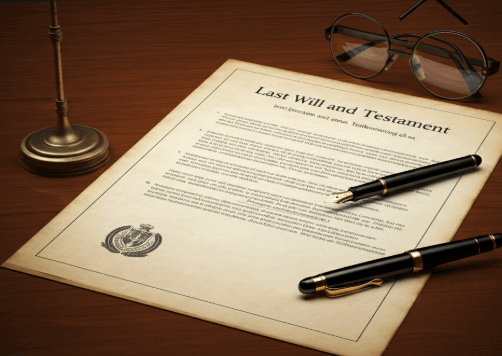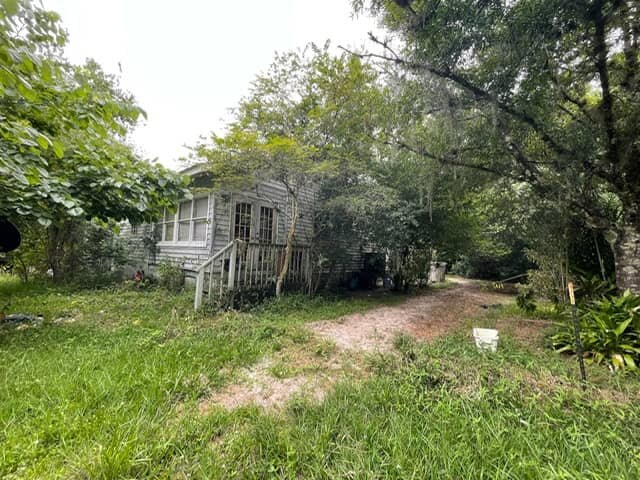When navigating the complexities of estate management, a common question arises: “Can an executor sell a house without probate in Englewood, Florida?” This blog explores the legal nuances surrounding this issue, providing clarity and guidance for executors and beneficiaries alike. Understanding whether an executor has the authority to sell property without undergoing probate is essential for making informed decisions about the estate’s assets. Join us as we delve into the considerations and steps involved in this process, answering the critical question, “Can an executor sell a house without probate in Englewood?”
In the context of selling a house without probate, real estate investors such as Steve Daria and Joleigh can offer valuable assistance to executors. They often have the expertise to navigate the intricacies of property transactions, especially in situations involving estates. By collaborating with experienced investors, executors can expedite the sale process while ensuring compliance with all legal requirements.
What is Probate?
Probate is the legal method of validating a deceased person’s will, settling debts, and distributing the remaining assets to beneficiaries.
When it comes to real estate, probate can complicate the sale of a property by introducing time-consuming legal steps.
Here’s a brief overview of the process:

- Validation of the Will: The will must be validated by the court to ensure it reflects the deceased’s true intentions.
- Settlement of Debts: All debts and taxes owed by the estate must be paid before any assets can be distributed.
- Distribution of Assets: After debts are settled, the remaining assets, including real estate, are distributed to beneficiaries.
For property sellers, probate often means delays and additional costs.
It involves court oversight to ensure all debts are paid before assets are distributed, which can complicate and lengthen the selling process.
However, not all estates need to go through probate if proper estate planning has been done.
Why Avoid Probate?
Navigating probate can be challenging and may involve substantial time and expense.
Avoiding probate can:
- Speed Up the Sale: Bypassing probate can streamline the selling process, allowing for a quicker transaction.
- Reduce Costs: Avoiding court fees and administrative costs associated with probate can save money.
- Prevent Legal Complications: Bypassing probate can minimize the risk of legal disputes among heirs or creditors.
Get An Offer Today, Sell In A Matter Of Days
Can an Executor Sell a House Without Probate in Englewood, Florida?
If you wonder, “Can an executor sell a house without probate in Englewood?” certain legal strategies can help you bypass the process entirely. Here are some:
Establishing a Living Trust
A living trust is a legal settlement that allows you to transfer property ownership to a trustee. Here’s how it works:
- Create a Trust Document: Draft a legal document that outlines how your property will be managed and distributed after your death.
- Transfer House Property to the Trust: The property is moved into the trust, and the trust becomes the lawful owner.
- Trustee Management: A trustee manages the property according to the trust’s terms, ensuring it is distributed as per your wishes.
Pros:
- Avoids Probate: Property in the trust does not go through probate.
- Privacy: The terms of the trust are not made public, unlike probate records.
- Flexibility: You can alter the trust as needed during your lifetime.
Cons:
- Setup Costs: Creating a living trust involves legal fees and administrative costs.
- Ongoing Management: The trust requires proper management and regular updates.
Joint Ownership with Rights of Survivorship
Joint ownership with the authority of survivorship is a common way to avoid probate.
In this arrangement:
- Co-Ownership: Two or more people jointly own the property.
- Automatic Transfer: When one owner dies, the property automatically shifts to the surviving owner(s), without going through probate.
Pros:
- Automatic Transfer: The property automatically goes to the surviving owner(s) upon death.
- Simplicity: It’s a straightforward and cost-effective method.
Cons:
- Shared Control: All co-owners must agree on major decisions regarding the property.
- Creditor Risks: The property may be subject to the creditors of any co-owner.
Transfer on Death (TOD) Deeds
Transfer on Death (TOD) deeds allow property to pass directly to a designated beneficiary without having to go through probate.
Here’s how to use a TOD deed:
- Create a TOD Deed: Draft a TOD deed that designates a beneficiary who will receive the property upon your death.
- File with County Recorder: File the TOD deed with the county recorder’s office where the property is located.
- Retain Control: You retain full control over the property during your lifetime.
Pros:
- Simplicity: Easy to set up and file.
- Retain Control: You maintain control over the property while alive.
- Flexibility: The TOD deed can be revoked or changed if needed.
Cons:
- State-Specific: Availability and rules vary by state.
- No Management: Does not address management of the property if you become incapacitated.
Tips for Selling Property as an Executor
If you’re an executor tasked with selling a property, consider the following tips:
- Confirm Non-Probate Status: Ensure that the property is not subject to probate by verifying the presence of a living trust, joint ownership, or TOD deed.
- Gather Documentation: Collect all important documents, including the death certificate, property deed, and any legal agreements. This helps in a smooth transaction.
- Consult a Real Estate Attorney: Seek professional advice to navigate legal intricacies and ensure compliance with state laws.

Common Challenges and Solutions
Selling a house without probate can present several challenges.
Here are some common issues and potential solutions:
Unclear or Disputed Ownership
- Challenge: Ownership disputes or unclear property titles can complicate the sale.
- Solution: Engage a mediator or attorney to resolve disputes and clarify ownership. Ensure all legal documents are updated and accurate.
Managing Property Expenses
- Challenge: Managing property expenses during the transition can be difficult.
- Solution: Keep detailed financial records of all expenses related to the property. Transparency helps in managing costs and ensures accountability.
Unfavorable Market Conditions
- Challenge: Market conditions may not be ideal for selling the property.
- Solution: Consider waiting for a more ideal market or explore creative selling options such as lease-to-own arrangements.
Importance of Legal Guidance
Legal guidance is important when selling a house without probate.
An experienced real estate attorney can:
- Interpret Legal Documents: Help you understand and navigate complex legal documents.
- Advise on Strategies: Provide advice on the best strategies for bypassing probate.
- Mediate Disputes: Assist in resolving disputes among heirs or creditors.
Conclusion
The query, “Can an executor sell a house without probate in Englewood, Florida?” often arises for those managing an estate. Understanding probate, exploring alternative legal options, and seeking professional guidance are key steps to ensure a smooth transaction.
By bypassing probate, you can expedite the sale, reduce costs, and avoid potential legal complications. Each situation is unique, so take the time to explore your choices and consult with experts to make correct decisions that best suit your needs and goals.
**NOTICE: Please note that the content presented in this post is intended solely for informational and educational purposes. It should not be construed as legal or financial advice or relied upon as a replacement for consultation with a qualified attorney or CPA. For specific guidance on legal or financial matters, readers are encouraged to seek professional assistance from an attorney, CPA, or other appropriate professional regarding the subject matter.

